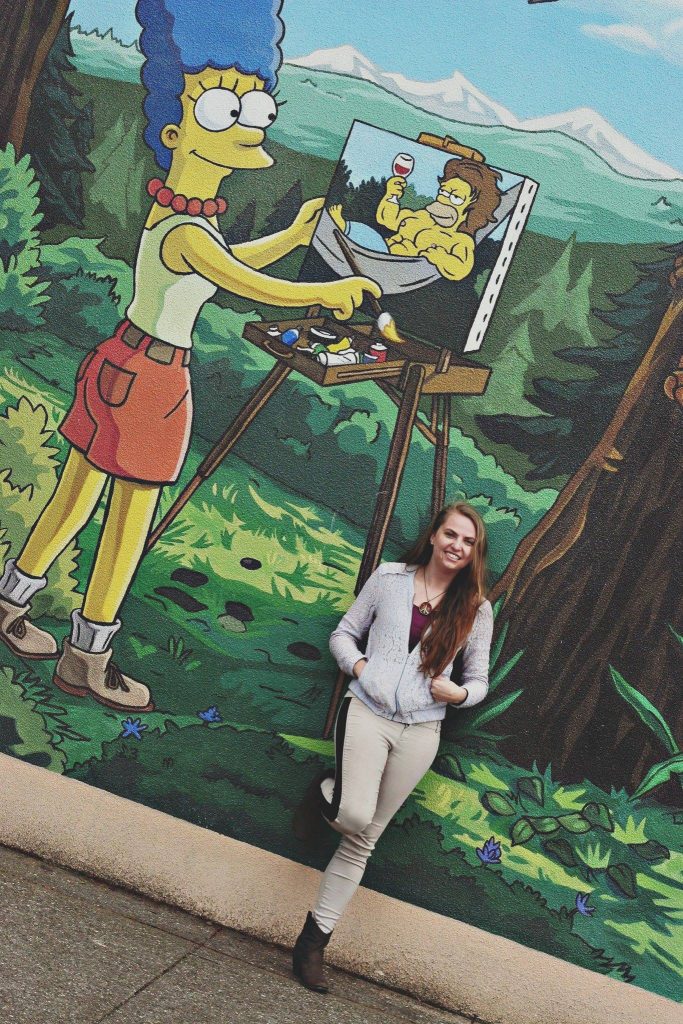Alumni Spotlight: Ellen Gillooly-Kress
Today we hear from Ellen Gillooly-Kress, a recent alumna who completed an MA in Linguistics and Theatre Arts.
Hi Ellen! Where are you and what are you currently doing?
I am across the campus at Villard Hall, and I am currently a first-year PhD student in Theatre Arts at the University of Oregon. My goal is to become a professor or an acting trainer. I am currently studying and rehearsing for various shows and projects. At the start of June, I will be appearing as an actor in Mr. Burns: A Post-Electric play by Anne Washburn, a play about how pop culture survives the post-apocalypse, which will wrap up the University Theatre’s 2016-17 season. (Click here for more info.)
Could you tell us more about your experience doing a Masters in Linguistics at the University of Oregon?
I completed my masters in two years. I took classes and conducted my own research with my adviser Eric Pederson. While in the linguistics department, I was encouraged to pursue both of my areas of study (theatre training and linguistics). I designed a pilot study to examine the non-verbal behavior that actors exhibit while reciting memorized language. This past summer, I got the chance to present my findings at the biennial conference for the International Society of Gesture Studies in Paris, France. The project remains a very exciting area of study for me, because it has the potential to contribute new knowledge to both the field of actor training and the field of co-speech gesture. I remain a member of the discourse lab, even though my home base is now in theatre arts.

How do you think an MA in Linguistics has helped you / is helping you in your current program?
I just taught a phonetics for actors workshop in the voice and dialect advanced acting class last week! A practical working knowledge of the vocal tract and acoustics is essential for any working actor to hone their craft, since their body is their tool in creating their art. I am also continuing to experiment with embodiment in language and performance, and testing different acting theories. Performers in theatre and in film recreate a lot of subconscious communication behavior and it is endlessly fascinating to me how they achieve all of these rich behaviors while trying to remember lines and where to go on stage! Earning a master’s degree in Linguistics really helped me to parse the difference between qualitative and quantitative evidence. Recognizing the immense value in both kinds of evidence while formulating theories helps me navigate the vast body of actor training techniques that are available to theatre practitioners.
Are there any nerdy linguistics things you wanna share?
I gotta share my undying love for Lauren Gawne and Gretchen McCulloch and their podcast @lingthusiasm (lingthusiasm.com)
Anna Deavere Smith’s unique personal style of theatre making often inspires my questions about theatrical production and cognition. Here’s her TED talk.
